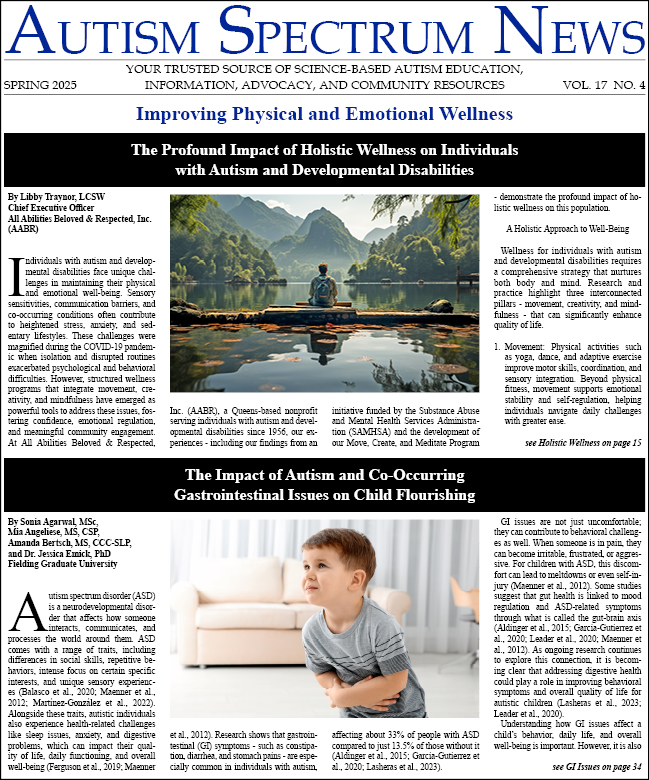-
Behavioral Treatment Components to Address Delayed or Denied Reinforcement
The introduction of delayed or denied reinforcement has been an important part of the behavioral literature and clinical treatment practice since the use of functional analysis and assessment procedures and function-based interventions became best practice (Hagopian, Boelter, & Jarmolowicz,...
-
The TEACCH Autism Program: First Families, Then Assessment and Program Design
“For people with autism, the best predictor of quality of life is employment, and for children with autism, the best predictor for future employment is attaining independent living skills.” Those words of Dr. Laura Klinger, Executive Director of the TEACCH Autism Program at The University of...
-
Is Play Therapy an Evidenced-Based Intervention for Children with Autism?
As a board-certified behavior analyst (BCBA), I work with families that have a child diagnosed with an autism spectrum disorder (ASD), and periodically see an increased interest in specific interventions. Multiple families start asking me whether a specific intervention is as effective as they are...
-
Overcoming Anxiety and Fear in Children and Teens
Study after study has shown that if you can get anxious individuals to gradually face their fears (a treatment called gradual exposure), their anxiety will decrease, and they will no longer be controlled by their fear. That is the science of treatment, to gradually face fears. But how do you get...
-
Research Steps in Establishing Music Therapy as an Effective Treatment for Children on the Spectrum
Music engages people. Autism advocates have recognized for years that engaging in music making can bring positive benefits to children with autism. The established profession of music therapy, which began in 1950 and currently has over 6,500 board certified music therapists throughout the United...
-
New Treatment Directions for Autism Spectrum Disorders – Neuromodulation
Much of our psychiatric and neurologic knowledge is based on a “lesion model.” When there is an intact nervous system and something happens, such as a stroke or bleed, some tissue is destroyed and deficits may remain. In autism and related developmental disorders, instead of one discreet area...
-
Addressing the Care and Treatment of Children with Autism Spectrum Disorders and Other Complex Disabilities
There are currently 492 children living in 12 Children’s Residential Programs (CRPs) in New York State. Children who live in residential placements often present with complex learning and behavioral profiles that require highly individualized care and support. Children with severe and complex...
-
Integrating ABA into Practice: Addressing the Misconceptions
The past few decades has seen drastic changes to the field of autism, at least in part due to changes in the defining characteristics/diagnostic criteria for Autistic Spectrum Disorder (ASD).1 As a result of increasingly inclusive criteria, professionals in fields such as psychiatry, medicine,...
-
Applied Behavior Analysis as an Intervention for Individuals with Autism: Reflections on 35 years of Evolution
It is difficult to find the words that best describe the evolution of autism treatment over the past 35 years. The science of applied behavior analysis (ABA) has changed substantially over the last 35 years. In 1980, autism was considered to be a low incidence disorder that was not as well...
-
From Crisis to Competence – ABA Used to Improve Communication Skills in Developmental Center
Applied Behavior Analysis (ABA) is a science wherein procedures, based on basic principles, are applied to important matters of everyday life in order to help individuals increase functional skills, while decreasing problematic ones (Cooper, Heron, & Heward, 2007.) Most notably, ABA has been...





